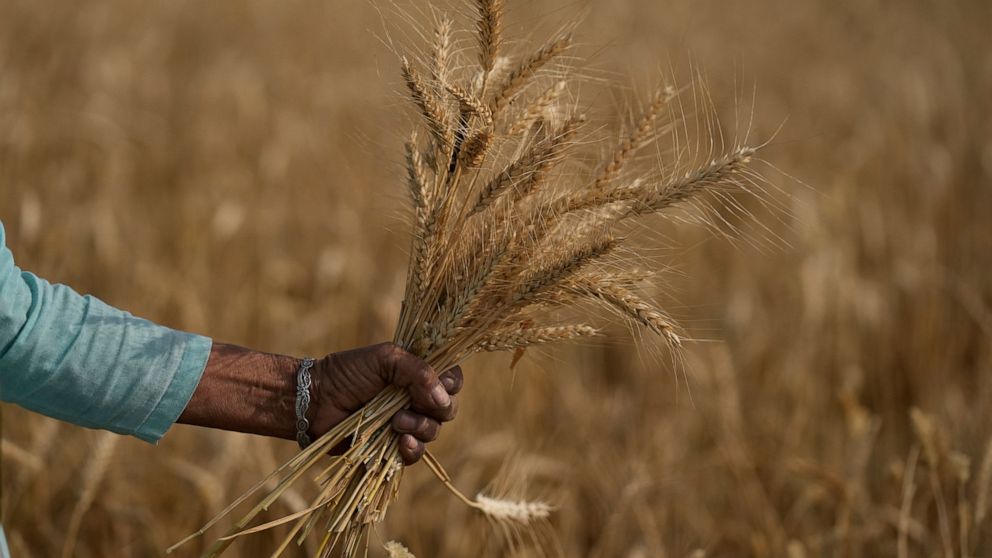
Heat wave scorches India's wheat crop, snags export plans
ABC News
India is in the throes of a record-shattering heat wave that is stunting wheat production
NEW DELHI -- An unusually early, record-shattering heat wave in India has reduced wheat yields, raising questions about how the country will balance its domestic needs with ambitions to increase exports and make up for shortfalls due to Russia's war in Ukraine.
Gigantic landfills in India's capital New Delhi have caught fire in recent weeks. Schools in eastern Indian state Odisha have been shut for a week and in neighboring West Bengal, schools are stocking up on oral rehydration salts for kids. On Tuesday, Rajgarh, a city of over 1.5 million people in central India, was the country's hottest, with daytime temperatures peaking at 46.5 degrees Celsius (114.08 Fahrenheit). Temperatures breached the 45 C (113 F) mark in nine other cities.
But it was the heat in March — the hottest in India since records first started being kept in 1901 — that stunted crops. Wheat is very sensitive to heat, especially during the final stage when its kernels mature and ripen. Indian farmers time their planting so that this stage coincides with India's usually cooler spring.
Climate change has made India’s heat wave hotter, said Friederike Otto, a climate scientist at the Imperial College of London. She said that before human activities increased global temperatures, heat waves like this year's would have struck India once in about half a century.
